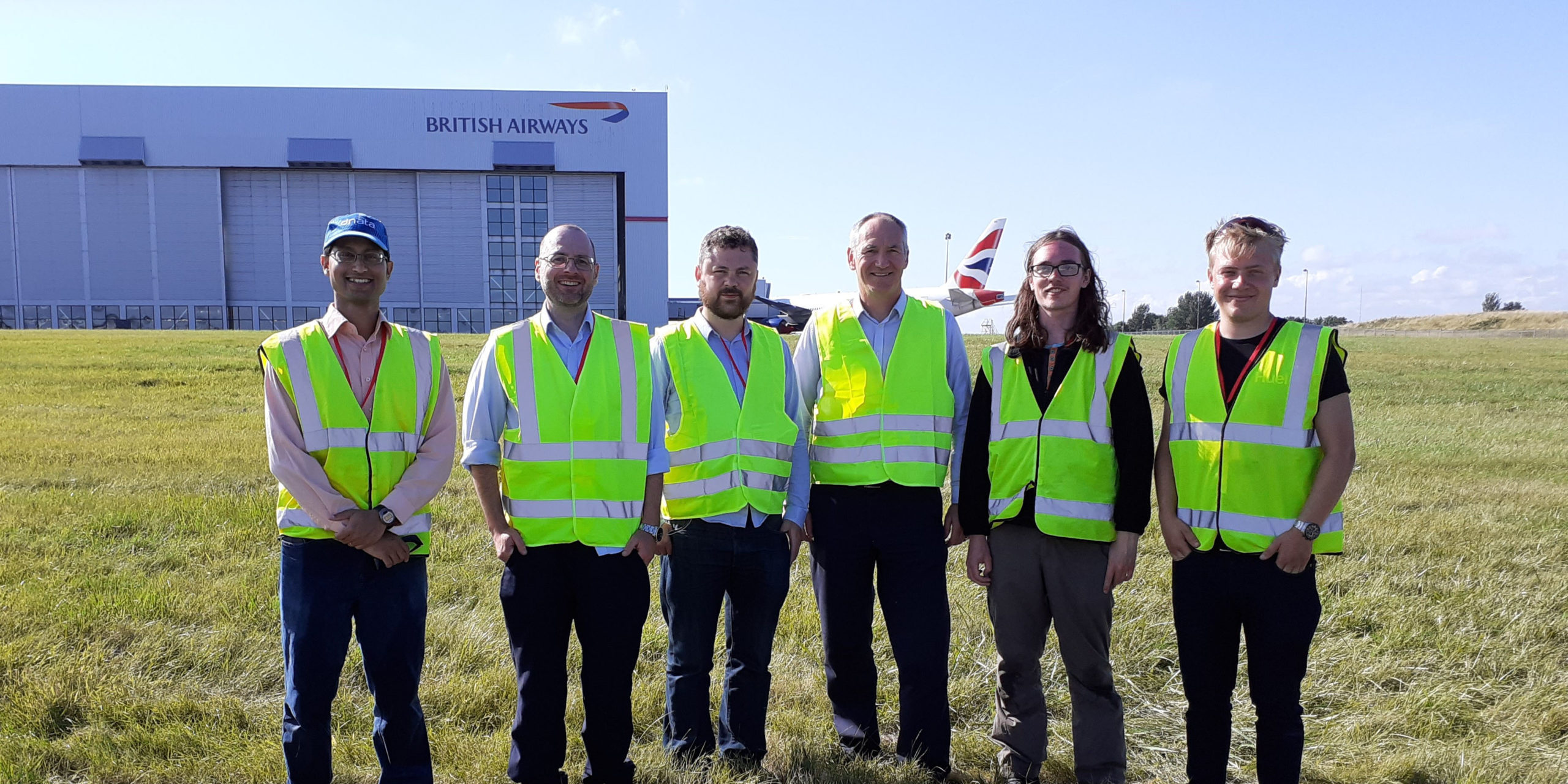
- The SafeZone project wins its third round of successful funding to develop next-generation drone flight by improving safety and commercial viability.
- Initial partners, Zenotech and Flare Bright are joined by Cardiff Airport and Cranfield University.
- This project wins a share of almost £70 million for ambitious, real-world demonstrations of a new aviation system from the Future Flight challenge.
- Driven by the impact of Covid-19, the resultant improved drone safety will be a game-changer, easing urban congestion and enabling more cost-effective airport inspections.
The world-first SafeZone project wins its third round of Future Flight challenge funding to transform the safety and commercial viability of drone flight. Founding partners Zenotech and Flare Bright are joined by Cranfield University and Cardiff Airport on a mission to develop safer unmanned drones in urban spaces; a game-changer to increase efficiency, ease congestion, improve sustainability and develop emergency services’ capabilities.
SafeZone wins a share of almost £70 million for ambitious, real-world demonstrations for a new aviation system from the Industrial Strategy Challenge Fund, delivered by UK Research and Innovation (UKRI), and designed to position the UK as a world leader in aviation.
Safety is critical with airports worldwide planning to significantly increase autonomous facilities inspections to improve cost-efficiency, a move accelerated by the impact of Covid-19. The SafeZone team will generate and use localised aerodynamic meteorological data to allow unmanned aerial vehicles (UAVs) to adapt their route as they fly through wind changes and close to buildings for inspection purposes.
The partnership plans to use these results to enable the delivery of a new live data service to provide real-time information about aerodynamic hazards in urbanised environments.
SafeZone draws on Flare Bright’s expertise in machine learning digital twins for drones, which in this project has aided the design, build and flying of UAVs and the ground-breaking capabilities of their wind-measuring nano-drone. This tech is combined with Zenotech’s cutting-edge high-performance computing and flow simulation tools, capabilities and in-house expertise.
In the initial stages of the project, Zenotech and Flare Bright achieved a world-first series of validation flight trials airside at Cardiff International Airport. As a testament to these successful results, Cardiff Airport is now on-board as a project partner, providing facilities and operational support. Cranfield University also joins the project.
Phase 3 pushes the boundaries of wind measurement, and rather than a single column of accurate wind measurement to validate Zenotech’s CFD wind models, this will measure wind using multiple drones flying simultaneously to pick up even finer detail over wider areas than ever previously achieved by any organisation.
David Standingford, co-founder of Zenotech said:
“This second Future Flight challenge win is a testament to our successful results in the initial tests with Flare Bright within the ‘maneuvering area’ of Cardiff Airport. We’re now delighted to welcome Cardiff Airport and Cranfield University as partners on the SafeZone Phase 3 project.
“It is rewarding that our cutting-edge CFD and HPC tools – zCFD and EPIC – and industry expertise in the fields of aeronautical engineering and renewables are contributing to the live data stream which will be a game-changer in enabling safer, greener, more commercially viable drone flight in urban spaces and airports.”
Carl Sequeira, Head of Engineering at Flare Bright said:
“We enjoyed working with Zenotech at Cardiff Airport on this exciting and groundbreaking project. It is great that UKRI has put its faith in our companies again to take this technology to – literally – new heights! Having accurate wind data is a critical enabler for the drone industry of the future, and we are looking forward to the challenges of bringing this latest innovation to reality and ultimately to the benefit of the wider industry.”
Professor Antonios Tsourdos, Head of the Autonomous and Cyber-Physical Systems Centre, Cranfield University, said: “We’re delighted to be joining the SafeZone project and contributing to this cutting-edge initiative to improve safety for drone operations. Effective route planning, risk and mitigation strategies will be key to ensuring safe flight operations for UAVs and the spaces in which they fly.”
Gary Cutts, Future Flight Challenge Director, UKRI said: “Phase 3 of the Future Flight challenge is all about moving innovative technologies forwards, making them ready for real world use cases. The UK has an excellent safety record when it comes to aviation and we’re determined to make sure these new autonomous technologies work as safely as possible. What the SafeZone project is doing is a critical part of that and I look forward to seeing them build on the excellent results from their initial project.”



